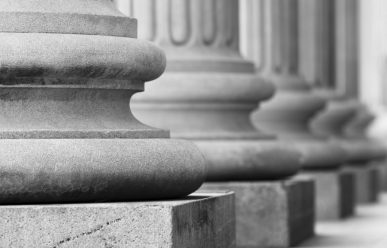Lawsuit Accused NuVasive of Marketing Spinal Device for Uses Not Approved by the FDA and Paying Unlawful Kickbacks to Physicians to Induce the Use of NuVasive Devices
GREENBELT, MD – July 30, 2015 – Spinal device company NuVasive, Inc. has agreed to pay the federal government and state governments $13.5 million to settle a whistleblower lawsuit brought under the federal and numerous state False Claims Acts. The lawsuit alleged off-label marketing of NuVasive’s CoRoent™ spinal device and payment by NuVasive of prohibited kickbacks to induce doctors to use that device.
The lawsuit, filed by Greenbelt, Md.-based law firm Joseph, Greenwald & Laake, P.A., alleged that NuVasive marketed the CoRoent device to physicians for uses not approved by the Federal Drug Administration (FDA). The FDA approved the device for limited use in only one spinal level in the lumbar and thoracic regions of the spine and for specific, relatively mild, spinal conditions. According to the Amended Complaint filed in the United States District Court for the District of Maryland, NuVasive knowingly marketed the CoRoent device from 2008 to 2013 for non-approved uses, including for use in more than one spinal level, for use in the thoracic region of the spine, and to treat more serious spinal conditions like scoliosis.
“A medical device company cannot market its products for uses that have not been approved by the FDA. Doing so can put patients at risk of harm,” said Jay P. Holland, a partner at Joseph, Greenwald & Laake and one of the attorneys representing the whistleblower in the case.
The lawsuit alleged that marketing the CoRoent device for these non-approved uses could lead to patient harm, and that these uses marketed by the company were not reasonable or not medically necessary for the treatment of these conditions. Under these circumstances, the lawsuit claimed, the device should not have been covered by Medicare, Medicaid and other government insurance programs.
Allegations also focused on the NuVasive-created organization known as the Society of Lateral Access Surgery (SOLAS). NuVasive was accused of using SOLAS, thinly veiled as a physician association, to offer and illegally pay physicians to induce them to use the CoRoent device in violation of the Federal Anti-Kickback Act. NuVasive paid physicians to author CoRoent-friendly articles and it paid speaker fees, entertainment, expenses and honoraria to doctors to attend events sponsored by SOLAS, according to the lawsuit. In addition, the lawsuit alleged that NuVasive created an outward appearance of independence for SOLAS, despite the fact that SOLAS was created, funded and operated solely by NuVasive.
The whistleblower lawsuit alleged that, as a result of off-label marketing and kickback schemes, physicians and hospitals were misled or induced into wrongly billing Medicare, Medicaid and other health care programs, resulting in millions of dollars improperly paid from the coffers of the federal and state governments.
“The Anti-Kickback Act was enacted to avoid conflicts of interests for physicians,” explained Veronica B. Nannis, partner at Joseph, Greenwald & Laake who also represented the whistleblower in this case. “Physician independence is critical. Physicians should use medical devices because they are the best option for their patient, not because the physician has an economic incentive to choose one device over all others.”
Holland and Nannis worked closely with the U.S. Attorney’s Office in Baltimore, led by Assistant U.S. Attorneys Thomas Barnard and Jason Medinger, who investigated the claims and resolved the case before litigation. The National Association of Medicaid Fraud Control Units participated by advancing the states’ interests. In addition, Colin M. Huntley, senior trial counsel in the U.S. Department of Justice Civil Division, played a key role in the early resolution.
“Participation from the private bar, the federal government and the states made this case an exemplar of the kind of private-public partnership the False Claims Act is meant to foster,” Holland said. “We are grateful for the hard work put in by all of the government attorneys and agents who brought about this resolution,” Nannis added.


